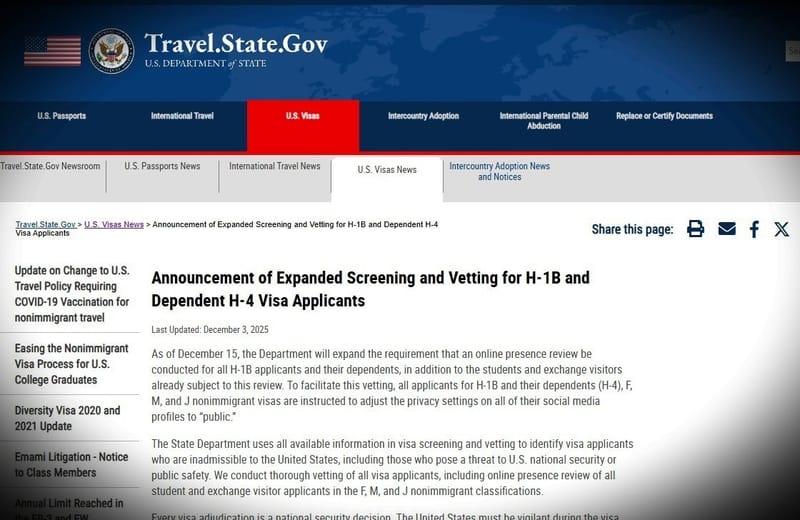Investment Fund Rejecting H-1B Employers Faces Delisting by Wall Street Trustee Group
This development underscores the growing politicization of investment decisions around immigration policy, potentially influencing corporate talent strategies and investor scrutiny of H-1B usage.

Subscribe to our newsletter and stay informed about latest H1B news, policy updates and and other developments.
Article Summary
A Wall Street trustee group is attempting to delist the Azoria investment fund, which explicitly refuses to invest in companies employing H-1B visa workers. Fund founder James Fishback views this as a punitive 'debanking' and has appealed to SEC Chairman Paul Atkins for intervention. The trustee group cited 'recent litigation involving a principal of Azoria' in its delisting filing.
Original Article: breitbart.com
[ Sentiment: negative | Tone: factual ]
This summary and analysis were generated by TheNewsPublisher's editorial AI. This content is for informational purposes only; it does not constitute legal or immigration advice.
[ Sentiment: negative | Tone: factual ]
This summary and analysis were generated by TheNewsPublisher's editorial AI. This content is for informational purposes only; it does not constitute legal or immigration advice.
TNP AI: Key Insights
This incident highlights a unique intersection of financial markets and immigration policy, indicating a potential shift where H-1B hiring practices could become a factor in investment screening. For employers, this introduces a new dimension of reputational and financial risk, urging a re-evaluation of how their skilled immigration strategies are perceived by the investment community.
The controversy reflects the long-standing debate about the H-1B program's impact on domestic labor, now manifesting in the financial sector. This could set a precedent for how regulators handle funds with specific social or political investment criteria, potentially leading to increased scrutiny or even legal challenges regarding the ethical and economic implications of H-1B visas.




